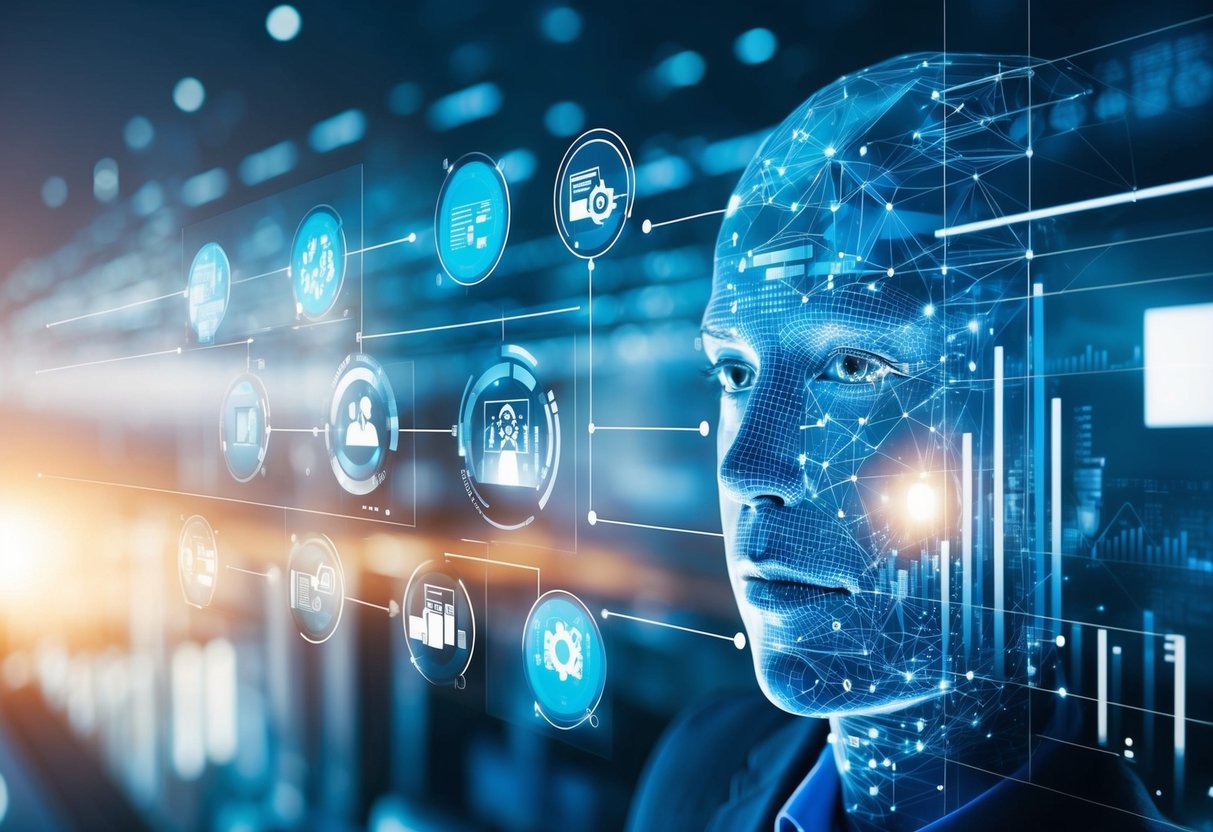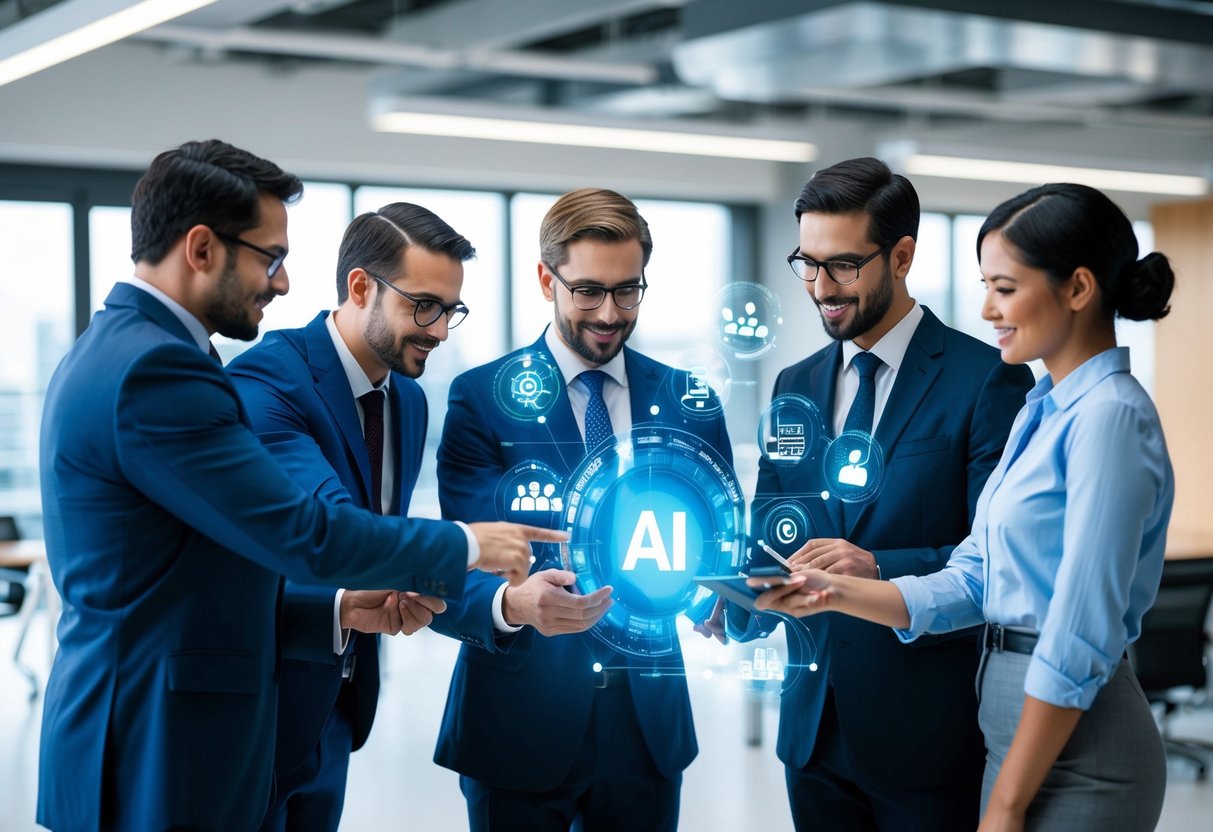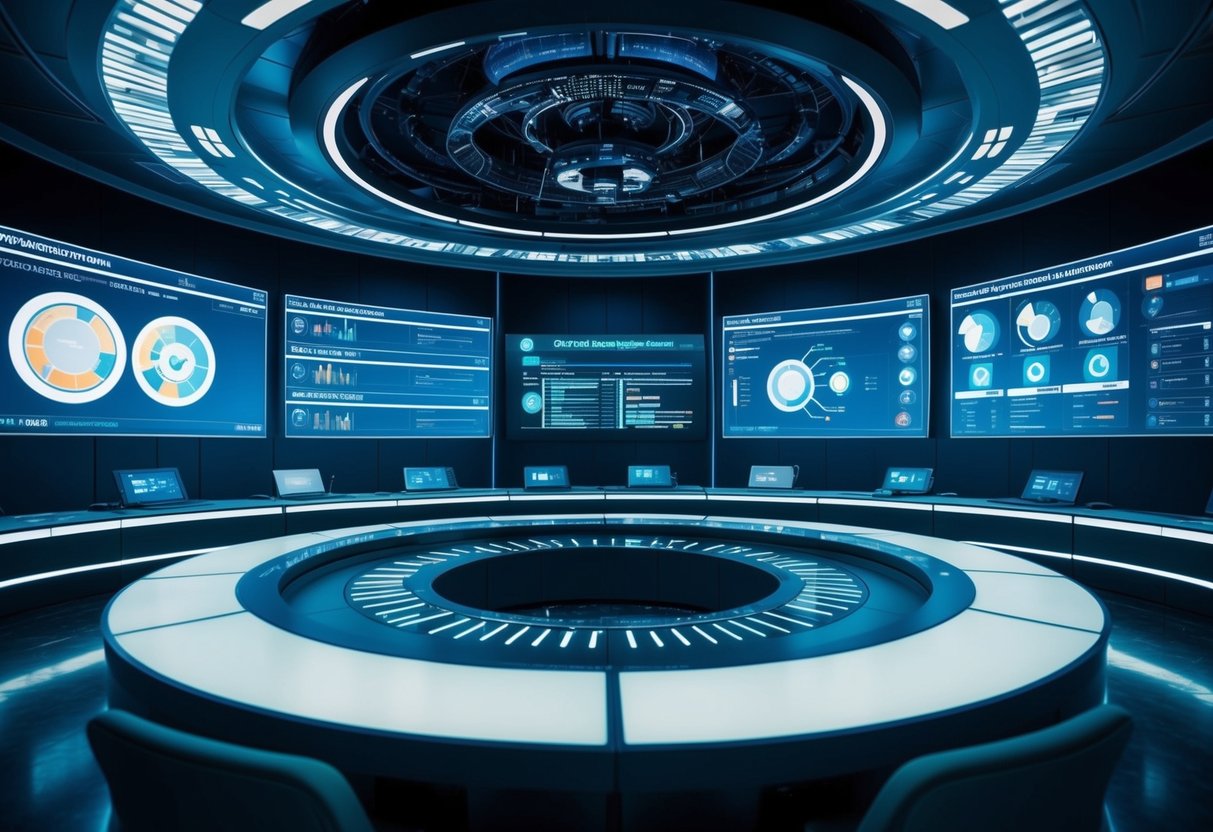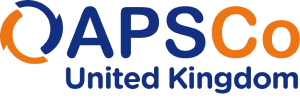How AI and Digital Will Affect and Better Project Controls and Commercial Management: Transforming Industry Practices
AI and digital technologies are changing project controls and commercial management. These tools help teams work smarter and faster. They automate routine tasks, spot risks early, and give better insights.

AI-powered systems can analyse vast amounts of project data to predict outcomes and suggest improvements. This allows managers to make better choices. Digital assistants can handle scheduling, resource allocation, and status updates. This frees up time for more strategic work.
By 2030, AI will be essential for successful projects. It will boost productivity and cut costs. Project teams using AI will have an edge over those that don’t. To stay competitive, organisations must start adopting these technologies now.
The Landscape of AI in Project Management

AI is transforming project management. It brings new tools and capabilities that are changing how projects are planned, executed, and controlled. This shift affects how teams work and make decisions.
Foundations of AI and Machine Learning in Project Controls
AI and machine learning give project managers powerful new ways to handle data. These systems can spot patterns in large datasets. This helps predict issues before they happen.
AI can also help with resource planning. It can suggest the best team makeup for a project. Machine learning algorithms get better over time as they learn from past projects.
Some key uses of AI in project controls:
- Risk assessment
- Cost estimating
- Schedule optimisation
- Resource allocation
These AI tools work best when fed high-quality data from past projects.
AI Tools and Project Management Software Integration
Many project management tools now have AI features built-in. These make tasks easier and faster.
Some examples:
- Automated status reports
- Smart task assignment
- Predictive analytics for project outcomes
AI chatbots can answer common project questions. This frees up the project manager’s time. Integration with other business systems is key. This lets AI tools access all relevant data.
Project teams are using AI to:
- Forecast project timelines
- Spot potential bottlenecks
- Suggest fixes for delays
As AI tools improve, they’ll become a must-have for competitive project teams.
Ethical Considerations and Algorithmic Bias
AI in project management raises some ethical questions. There’s a risk of bias in AI decision-making. This could lead to unfair treatment of team members or stakeholders.
Project managers must be aware of:
- Data privacy concerns
- Transparency in AI decision-making
- Potential job displacement
It’s crucial to have human oversight of AI systems. This helps catch and correct any biases. Teams should also be trained on the ethical use of AI tools.
Organisations need clear policies on AI use in projects. These should cover data handling and algorithmic fairness. Regular audits of AI systems can help spot and fix issues.
Current Market Trends and Future Outlook
The market for AI in project management is growing fast. More firms are investing in AI tools to gain a competitive edge.
Key trends include:
- Rise of predictive project analytics
- AI-powered virtual project assistants
- Increased use of natural language processing
Looking ahead, AI is set to become more deeply integrated into project workflows. We may see AI taking on more complex project planning tasks.
The job of project manager will evolve. Skills in AI oversight and ethics will be crucial. Project teams will need to adapt to working alongside AI tools.
As AI tech advances, we can expect:
- More accurate project forecasting
- Better handling of complex, multi-project environments
- Improved stakeholder communication through AI
The future of project management will be a blend of human skills and AI capabilities.
Impact on Project Planning and Scheduling

AI and digital tools are transforming how project managers plan and schedule tasks. These technologies automate processes, predict outcomes, and optimise resource use.
Automation of Task Scheduling
AI systems can create project schedules faster and more accurately than manual methods. They analyse past project data to estimate task durations and spot potential bottlenecks. This helps project managers build realistic timelines.
AI scheduling tools can also adjust plans in real-time as project conditions change. If a task runs late, the system can automatically update the schedule and notify team members.
Some AI schedulers use machine learning to improve over time. They learn from each project to make better estimates for future work.
Predictive Analytics in Project Timelines and Milestones
Predictive analytics uses AI to forecast project outcomes based on current and historical data. This helps project managers spot risks early and take action.
AI models can predict:
- Likely completion dates for tasks and milestones
- Potential budget overruns
- Resource shortages
These predictions allow teams to be proactive rather than reactive. Managers can address issues before they become major problems.
AI can also simulate different project scenarios. This lets teams test various approaches and choose the best path forward.
Resource Allocation and Optimisation
AI tools help project managers assign the right people and resources to tasks. They consider factors like:
- Team member skills and availability
- Equipment capacity
- Budget constraints
These systems can quickly create optimal resource plans. They balance workloads across the team and avoid overbooking.
AI can also track resource use in real-time. It flags when a person or asset is over- or under-utilised. This allows managers to make adjustments to keep the project on track.
Some AI tools even suggest ways to improve resource efficiency. They might recommend training for team members or investing in new equipment.
Enhancements in Collaboration and Communication

AI and digital tools are transforming how project teams work together and share information. These advances boost productivity and help teams tackle complex tasks more efficiently.
Team Collaboration and AI
AI-powered tools make teamwork smoother and more productive. Smart assistants can schedule meetings, send reminders, and track tasks automatically. This frees up time for team members to focus on important work.
Virtual workspaces use AI to organize files and data. Team members can find what they need quickly, even across large projects. AI can also spot patterns in how teams work and suggest ways to improve.
Chatbots help answer common questions fast. This cuts down on emails and meetings. AI writing tools can help draft reports and other documents, speeding up workflows.
Digital Platforms for Stakeholder Management
New digital platforms keep everyone in the loop on projects. These tools give real-time updates to clients, suppliers, and other key players.
Interactive dashboards show project progress at a glance. Stakeholders can drill down into details as needed. AI helps predict potential issues, so teams can address them early.
Smart scheduling tools find the best times for meetings across different time zones. This makes it easier to work with global teams and clients.
Secure document sharing and e-signature tools speed up approvals. This cuts down on delays and keeps projects moving forward.
Natural Language Processing for Improved Communication
Natural Language Processing (NLP) is making project communication clearer and more efficient. AI can analyse emails and messages to highlight key points and action items.
Translation tools powered by NLP help teams work across language barriers. This is crucial for international projects.
Voice-to-text tools can create accurate meeting notes automatically. AI then summarises these notes, pulling out main points and tasks.
NLP also helps in analysing customer feedback and project reviews. This gives teams better insights into what’s working well and what needs improvement.
Data-Driven Project Monitoring and Risk Management

AI and digital tools are changing how projects are monitored and risks are managed. These technologies use data to spot issues early and make better choices.
Real-Time Data and Reporting
AI systems can gather data from many sources at once. This gives project teams up-to-date info on tasks, costs, and progress. Real-time data helps catch problems fast before they grow bigger.
Digital dashboards show key data clearly. Managers can see charts and graphs that update as new info comes in. This makes it easy to track project health at a glance.
AI can also send alerts when things go off track. If a task is late or costs are too high, the system can notify the right people right away.
Risk Assessment and Prediction
AI helps find project risks by looking at past data. It can spot patterns that humans might miss. This allows teams to prepare for possible problems.
Machine learning models can predict which risks are most likely. They use info from similar past projects to guess what might go wrong. This helps teams focus on the biggest threats.
AI tools can also suggest ways to handle risks. They might recommend backup plans or extra resources for risky tasks. This helps projects stay on track even when problems come up.
Project Tracking and KPIs
AI makes it easier to track key performance indicators (KPIs). These are numbers that show how well a project is doing. Digital tools can calculate KPIs automatically using project data.
Teams can set up custom KPIs for each project. AI systems can then track these and show trends over time. This helps spot areas that need more attention.
AI can also link KPIs to project goals. If a KPI falls below target, the system can suggest actions to get back on track. This helps keep projects moving towards success.
Operational Efficiency and ROI
AI and digital technologies are transforming project controls and commercial management. They boost efficiency and return on investment through smart automation, data-driven insights, and optimised workflows.
Automated Task and Process Management
AI systems can handle routine tasks without human input. This frees up staff to focus on complex work that needs their skills. For example, AI chatbots can answer common questions from team members or clients. This cuts down on emails and meetings.
AI also speeds up document processing. It can scan contracts, invoices, and reports to extract key data. This information then feeds into project management systems automatically. The result is faster, more accurate record-keeping.
Predictive AI tools can spot potential issues before they cause delays. They analyse project data to flag risks early. This allows managers to take action and keep projects on track.
Workflow Integration and Resource Optimisation
AI helps link different parts of a project smoothly. It can sync data across teams and systems in real-time. This cuts down on miscommunication and duplicate work.
Smart scheduling tools use AI to assign tasks more efficiently. They look at staff skills, workloads, and project needs. Then they suggest the best person for each job. This leads to better use of team members’ time and talents.
AI can also track resource use throughout a project. It spots waste and suggests ways to cut costs. For instance, it might find cheaper suppliers or more efficient equipment.
Analysing Project Success Rates
AI-powered analytics dig deep into project data. They reveal patterns that humans might miss. This helps firms learn from past projects and make better choices in the future.
Machine learning models can predict project outcomes. They use data from similar past projects to forecast timelines and budgets. This helps managers set realistic goals and plan resources wisely.
AI tools can also measure the impact of different factors on project success. They might show how team size, budget changes, or client engagement affect results. This knowledge helps firms fine-tune their approach for better outcomes.

